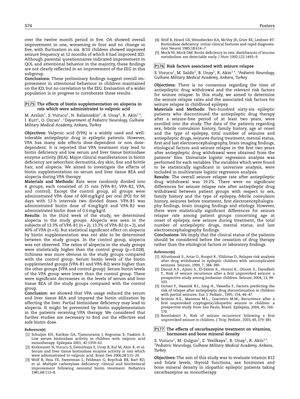The Effects of Biotin Supplementation on Alopecia in Rats Treated with Valproic Acid
September 2009
in “
European journal of paediatric neurology
”

TLDR Biotin supplements did not significantly reduce hair loss in rats on valproic acid.
In the study conducted by Arslan et al., the effects of biotin supplementation on alopecia in rats treated with valproic acid (VPA) were investigated. The study involved 60 rats divided into four groups: VPA-B1 (VPA plus 6 mg/kg/d of biotin), VPA-B2 (VPA plus 0.6 mg/kg/d of biotin), VPA only, and a control group. All groups except the control were given 600 mg/kg/d of VPA for 60 days. Alopecia was observed in 13.3% of rats in both VPA-B1 and VPA-B2 groups (2 out of 15 rats each), and 40% of rats in the VPA group (6 out of 15 rats), while no alopecia was seen in the control group. The study found that VPA usage reduced serum and liver tissue biotinidase enzyme activity (BEA) and impaired biotin utilization, which could lead to alopecia. Biotin supplementation increased serum biotin levels but did not show a statistically significant effect on alopecia. The researchers concluded that partial biotinidase deficiency may lead to alopecia and might be preventable with biotin supplementation in patients receiving VPA therapy, but further studies are needed to determine an effective and safe dose of biotin.



